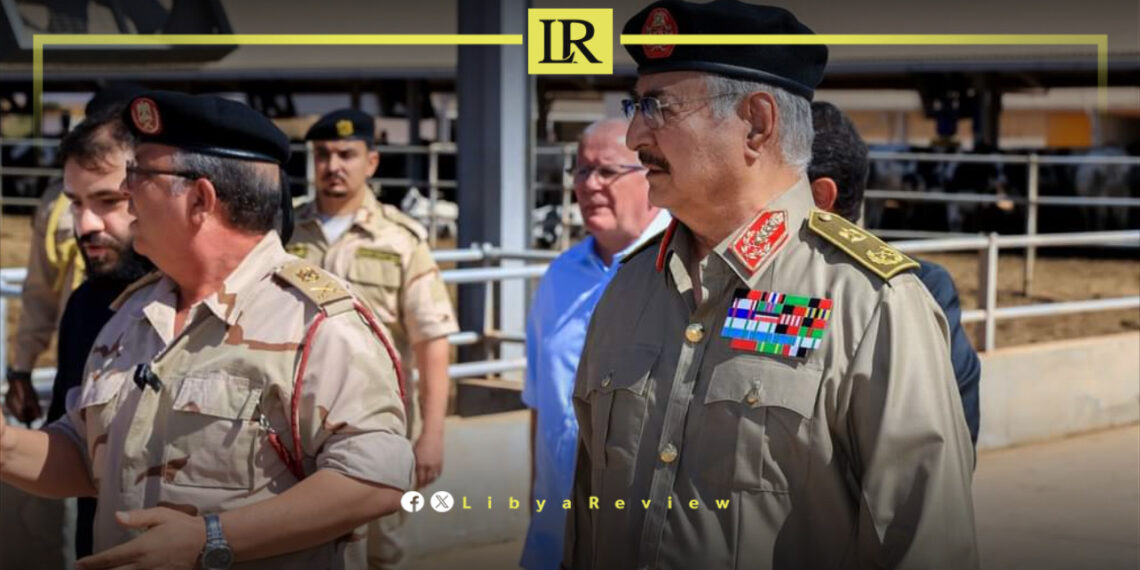On Tuesday, the Commander of the Libyan National Army (LNA), Field Marshal Khalifa Haftar, emphasized the critical need to strengthen and develop infrastructure in Libya’s agriculture and livestock sectors.
This statement came during his visit to the newly inaugurated Poultry and Cattle Complex in Ghot Sultan, east of Benghazi, according to the General Command’s media office.
Accompanied by Major General Khaled Khalifa Haftar, Chief of Staff of the Security Units, and other senior military leaders, Haftar praised the project, expressing his satisfaction with the state-of-the-art facilities built to modern international standards.
The media office underscored the significance of this visit, noting that Ghot Sultan was the site of a previous assassination attempt on Haftar’s life, orchestrated by terrorist groups through a suicide bombing. His return to the area under such different circumstances is seen as a powerful message about the LNA’s ongoing commitment to stability, development, and transforming regions that once suffered from violence into hubs of growth and production.
Haftar’s visit coincided with the official opening of the revamped Poultry and Cattle Complex, which is poised to boost local food production. The media office remarked that Haftar’s return to Ghot Sultan reflects the army’s resolve to press forward with national projects, turning sites of past tragedies into symbols of resilience and progress.
Libya’s agriculture and livestock sectors, once key pillars of the national economy, have been severely impacted by years of conflict, infrastructure damage, and instability. Haftar’s focus on revitalizing these sectors reflects a broader strategy to restore Libya’s economic strength and reduce its dependence on imports.
The opening of the Poultry and Cattle Complex is part of a wider initiative aimed at bolstering domestic production, securing the country’s food supply, and creating jobs. The complex is equipped with modern technologies that are expected to enhance food security, making Libya less reliant on foreign imports.
For Haftar and the LNA, rebuilding Libya’s agricultural infrastructure is not just an economic necessity—it’s a crucial part of stabilizing the country. By fostering local production and restoring key industries, Libya can move toward a more self-sufficient and stable future.


